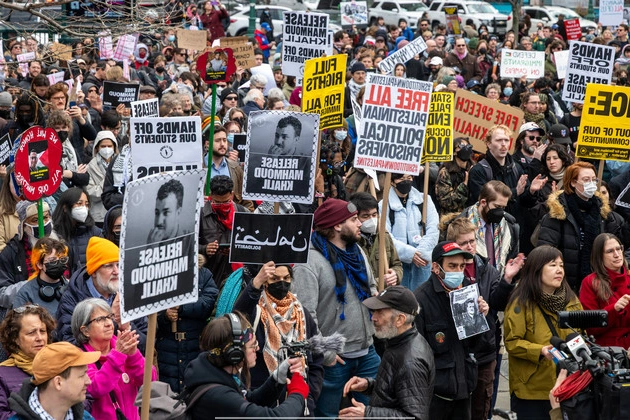
Legal Battle Over Deportation of Mahmoud Khalil
A federal judge in New Jersey recently made a significant ruling that has blocked the Trump administration’s efforts to deport Mahmoud Khalil, a pro-Palestinian activist and former Columbia University student. The judge’s decision was based on constitutional grounds and has sparked a legal battle over Khalil’s immigration status.
U.S. District Judge Michael Farbiarz concluded that the provision of federal law used by the Trump administration to justify Khalil’s deportation, which allows the removal of foreign citizens with adverse foreign policy consequences, likely infringes on Khalil’s First Amendment rights.
Farbiarz’s ruling, outlined in a 14-page order, also questioned the constitutionality of the statute invoked by Secretary of State Marco Rubio, suggesting that Khalil’s detention was unjustified. The judge highlighted that the Trump administration’s additional justifications for Khalil’s detention, related to omissions in his green card application, were unlikely to hold up in court.
Implications of the Ruling
While the judge’s decision represents a significant setback for the Trump administration’s immigration policies, it does not guarantee Khalil’s immediate release. Farbiarz’s ruling has been temporarily stayed to allow for potential appeals from the government.
Khalil’s attorney, Baher Azmy, expressed optimism following the ruling, indicating that Khalil may be released soon if the court upholds the decision. Azmy criticized the government’s actions as retaliatory and unconstitutional, emphasizing Khalil’s right to free speech.
Notably, Khalil’s case is part of a broader crackdown on pro-Palestinian activists by the Trump administration. Similar individuals detained in connection to this crackdown, such as Rumeysa Ozturk and Badar Khan Suri, have been released following legal challenges.
Future Legal Proceedings
As the legal battle over Khalil’s deportation continues, the judge’s ruling sets a precedent for challenging the government’s use of immigration laws to target activists. The departments of Justice, State, and Homeland Security have yet to comment on the ruling or indicate their next steps.
Given the ongoing legal developments, Khalil’s case highlights the intersection of immigration policy, free speech rights, and constitutional protections in the United States.











